AI Mode: What It Means for Writers Now
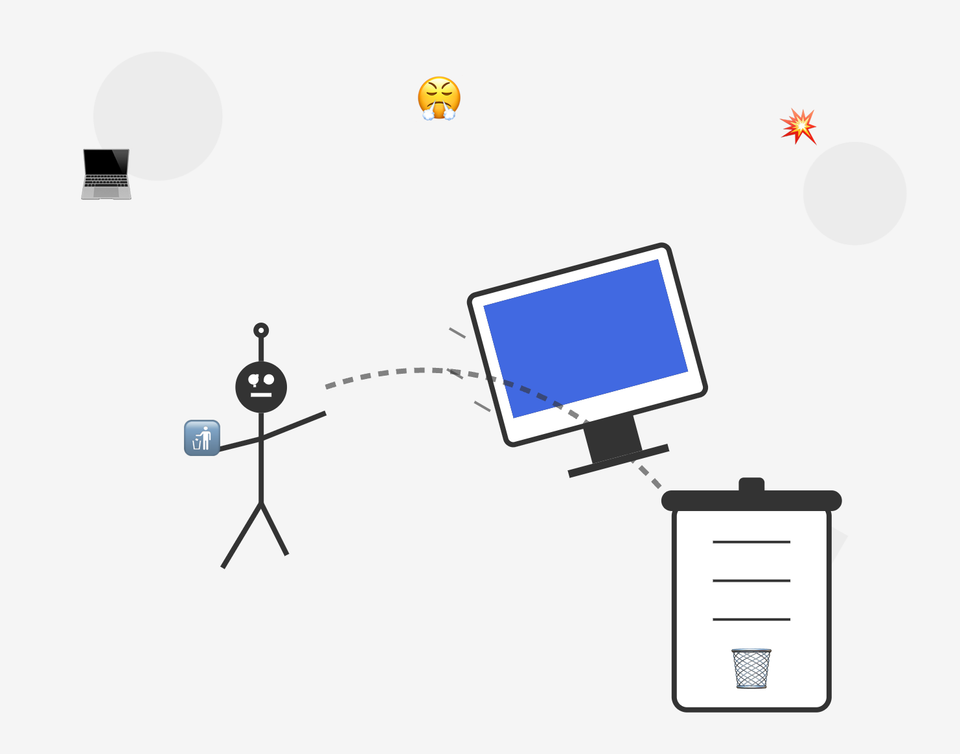
AI Mode is here. We're all doomed 😱
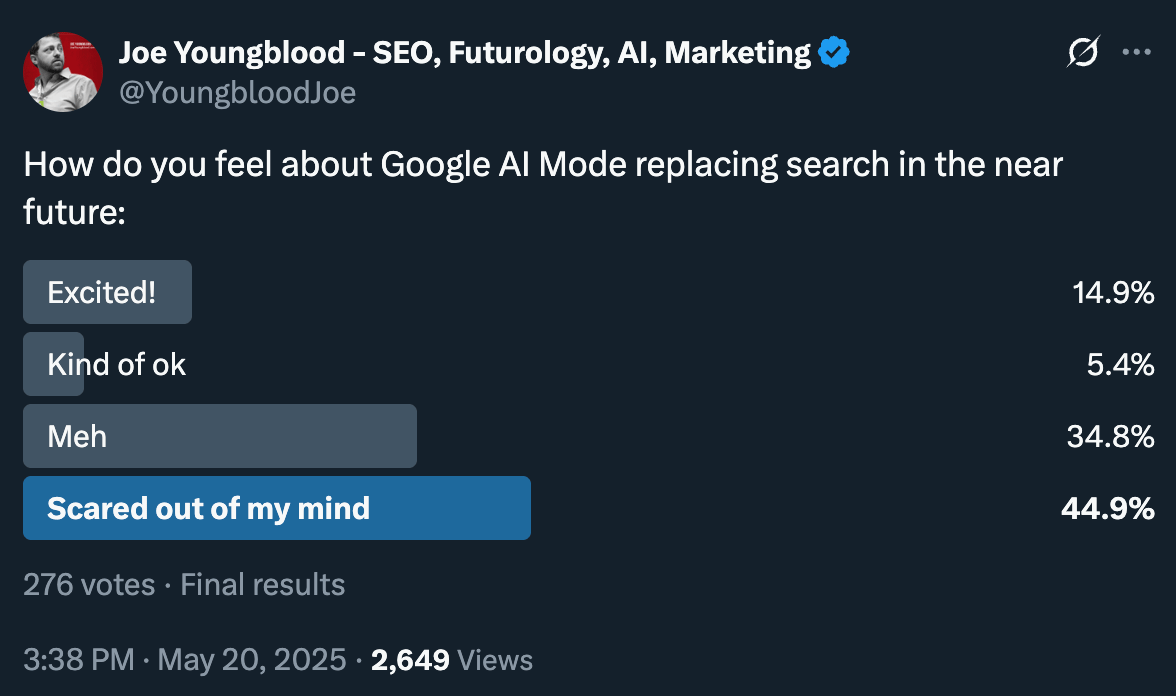
I'm just kidding. I don't think we're doomed, but I can understand why people are worried. The next couple of years are going to completely change the way we think about content, search, and SEO.
If you've tried AI Mode, you'll know we're in for a massive shift in the way people find information online.
Organic search is not going anywhere just yet, but I think people will love AI Mode and will quickly default to it. It caters to our laziness. And I think people will sacrifice accuracy for speed.
Edit 24 hours after publishing.... this meme says it better!
— Mark Williams-Cook (@markwilliamscook.com) 2025-05-30T09:28:52.748Z
There's no doubt that writers, editors, and strategists will need to adapt, and that process starts now.
I want to try to explain the changes through the lens of content production, setting aside some of the more technical questions about functionality and metrics.
We need to understand "query fan-out"
Query fan-out is the process Google uses to construct an answer in AI Mode, and this is the best information we have about what's coming next for content writers and editors.
In this excellent article, Mike King breaks down exactly how AI Mode works and what is happening behind the scenes.
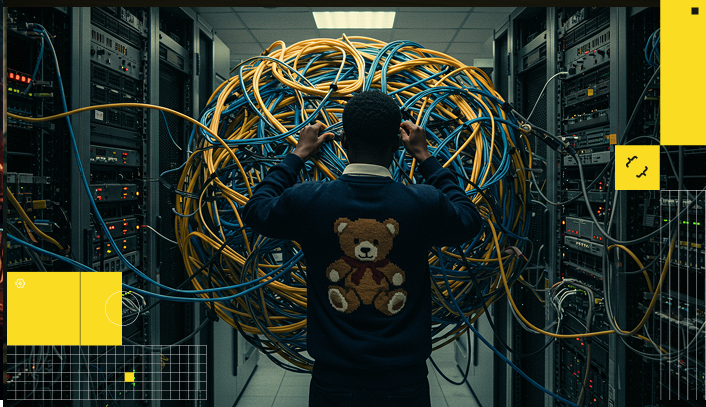
He says that AI Mode has a number of new features, including:
Fan-out queries that rewrite the search experience as a latent multi-query event
Query fan-out processes your question and conducts multiple searches in the background to compile the answer. Think of it like a bunch of related and follow-up questions.
It rapidly pulls all of those results together and organizes them for you in a single response.
This is new. It's not the way AI Overviews work. We all know AI Overviews are crap.
OMG. This AI Overview recommends SEARCHING GOOGLE for the answer to my question. Yes, I’ve tried that, and there’s a massive and completely useless AI Overview in the way of the results….
— Claire Broadley (@clairebroadley.com) 2025-05-25T06:46:14.431Z
AI Mode is not like this. The experience is better, and the answers are better (although not perfect). I believe AI Mode will become the default. It makes organic results look clunky and obsolete.
How do we write for AI Mode?
Nobody knows.
Do not believe anyone who says they know.
Do not pay for anyone to "rank" you in ChatGPT or AI Mode or Perplexity unless the company can prove repeatable results. (I have not seen evidence of a valid process yet.)
That said, I think we can use what we know about LLMs, query fan-out, and AI Mode to get some clues about the content it 'prefers' (which is as close as we'll get for now).
Format content to address real questions and provide new answers
Query fan-out is a chain reaction. Ask a question, Google finds the follow-up questions for you, then answers them proactively.
For now, I think optimizing for follow-up and related questions makes sense. It's a helpful thing to do when expanding topical coverage, and we're used to working with semantic keywords already.
But let's think about how we'll do this. We don't need to throw ourselves into spamming FAQ schema all over every blog post.
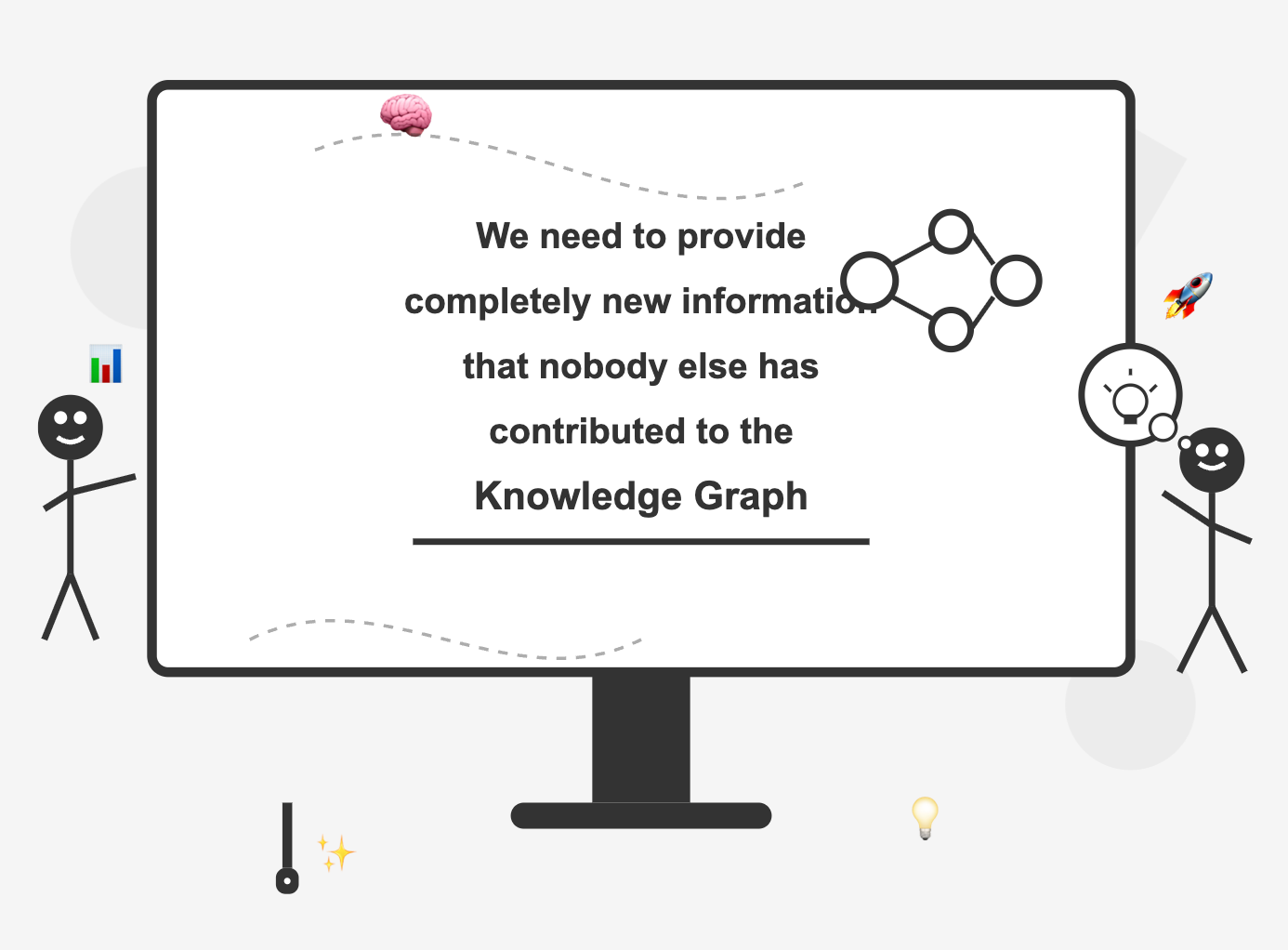
Copying People Also Ask questions and typing a lazy answer is not going to work here.
When we answer questions that have already been answered, we're not contributing to the Knowledge Graph.
We only add value if we provide NEW information.
Finding the gaps is the thing will give our content the chance to appear.
- Think about what people need to do tomorrow, not what they're asking for today
- Ask your support team if issues are trending
- Think about new cutting-edge topics, and behaviour shifts
- Talk to sales teams to find out about features people need next
- Talk to people on social media instead of broadcasting at them
Start listening to real questions. Start putting time and effort into providing honest and complete answers.
Ditch the shortcuts and hacky AI crap
Creating thin content is a waste of your time.
Stop generating boring AI slop that nobody reads anyway. Stop changing all pronouns to the first person and faking EEAT.
You're throwing money at content that wasn't good enough in the first place.
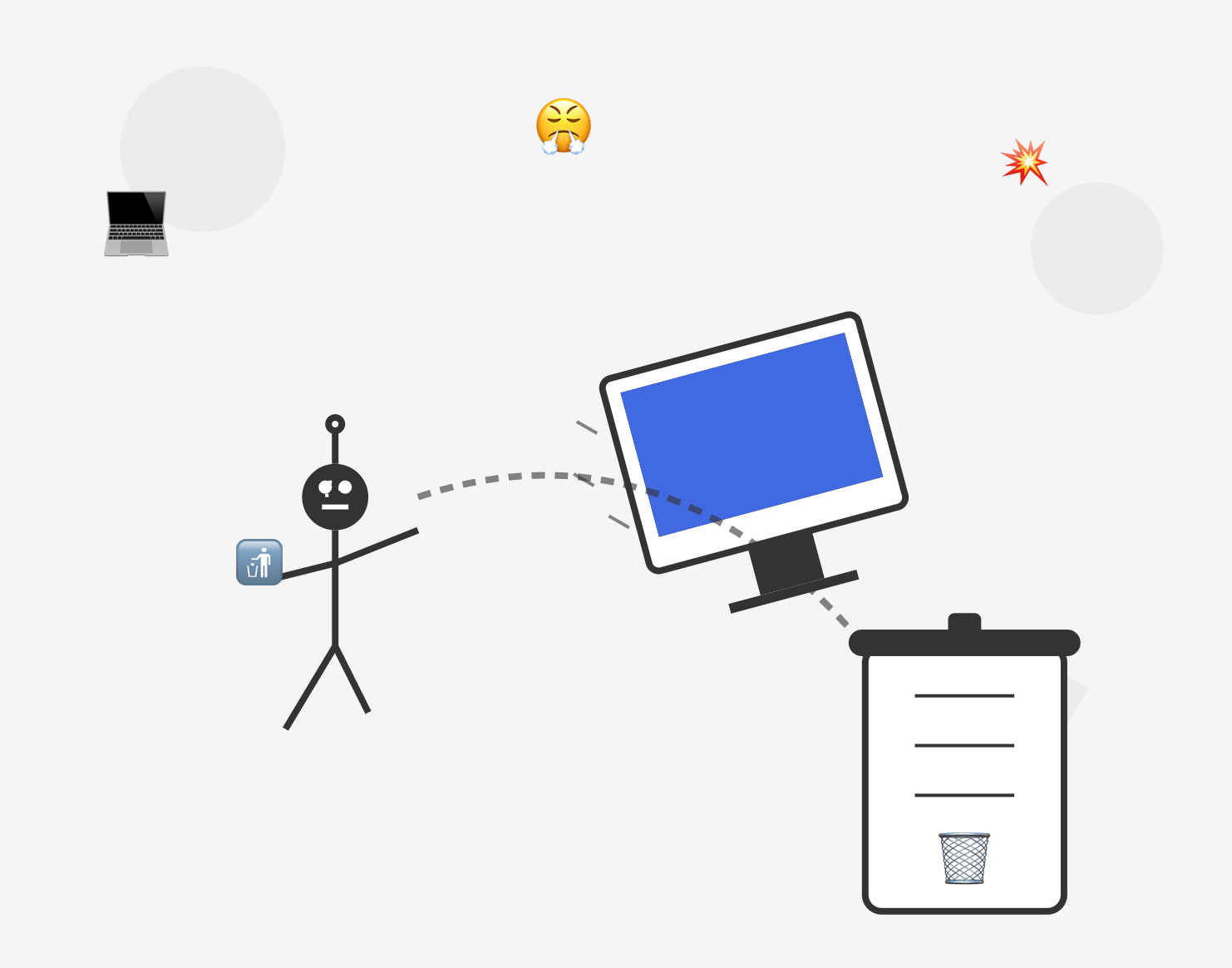
Businesses are going to have to produce content that is original and impossible to copy. It's a new gold standard that few sites are meeting right now, and there is an immediate opportunity for writers and editors who can do it well.
I'm talking about:
- Real expert opinions
- Real research
- Insider info that only you can share
- Reviews of products you've used for years (not hours)
- Thought leadership that comes from actual leaders
- Content people share organically and spontaneously, without being pushed or nagged
Up your game on content decay
Content decay is a natural process. Over time, all content becomes less accurate, less relevant, and less interesting. The rate of decay varies for different brands and different content types, but it all decays eventually.
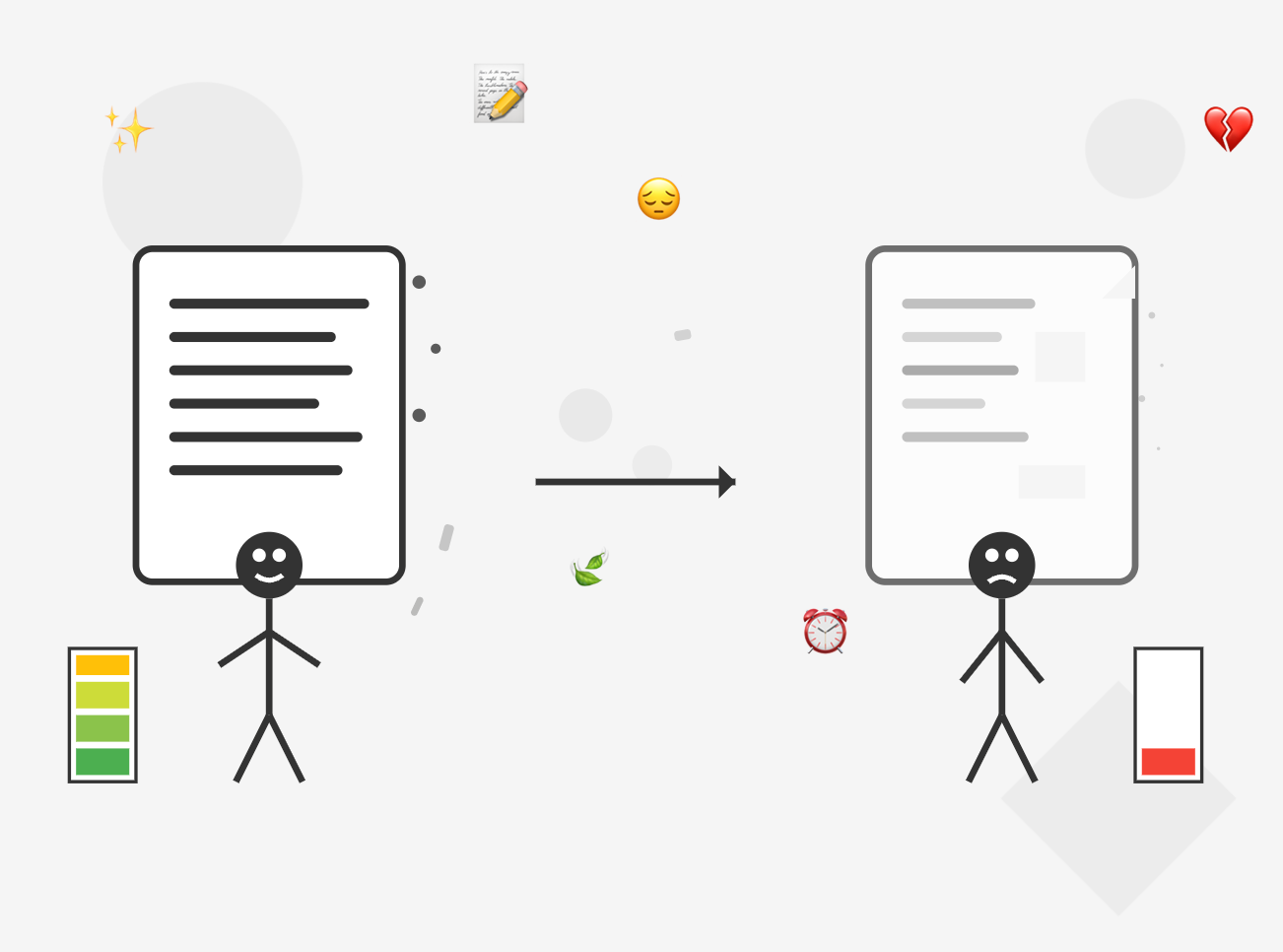
That's why ongoing content maintenance is an important investment (and often cheaper than publishing something new).
And there is a new reason to care about this.
In AI Mode, your old, decayed, inaccurate content will be presented as an answer that looks definitive, and entirely factual.
As Lily Ray explains, in its current state, there is no need to click on anything in an AI Mode answer, or go to the source of the information:
Unless there are many changes they plan to make to AI Mode going forward, in its current state, it is absolutely a walled garden that appears to be designed to keep the user on Google at all costs.
So you're entirely dependent on AI Mode (or ChatGPT, or whatever) to provide accurate information based on the content you currently have.
AI search is no longer just about keywords. It’s about how your brand shows up in model memory, embeddings, and model behavior.

According to these tests, AI Mode does not pull from live search results. It's pulling content from a cached version of your page, and we don’t know how often it updates. All we know is that it takes time to change.
So if you notice a mistake in AI Mode responses, changing the content reactively won't necessarily impact results right away.

This is an opportunity for editors and writers to step in and proactively improve freshness so that AI Mode has a chance to update.
Businesses: Invest in editors, content databases, and maintenance plans to make sure AI Mode answers are accurate. If you have a good grasp of the problem, and the risk, you will be successful in getting on top of it.
Structure content carefully
LLMs use content chunking to retrieve information.
Without going into too much technical detail, this means they break down pages into sections to understand and retrieve them. (It's similar to the way we skim-read.)
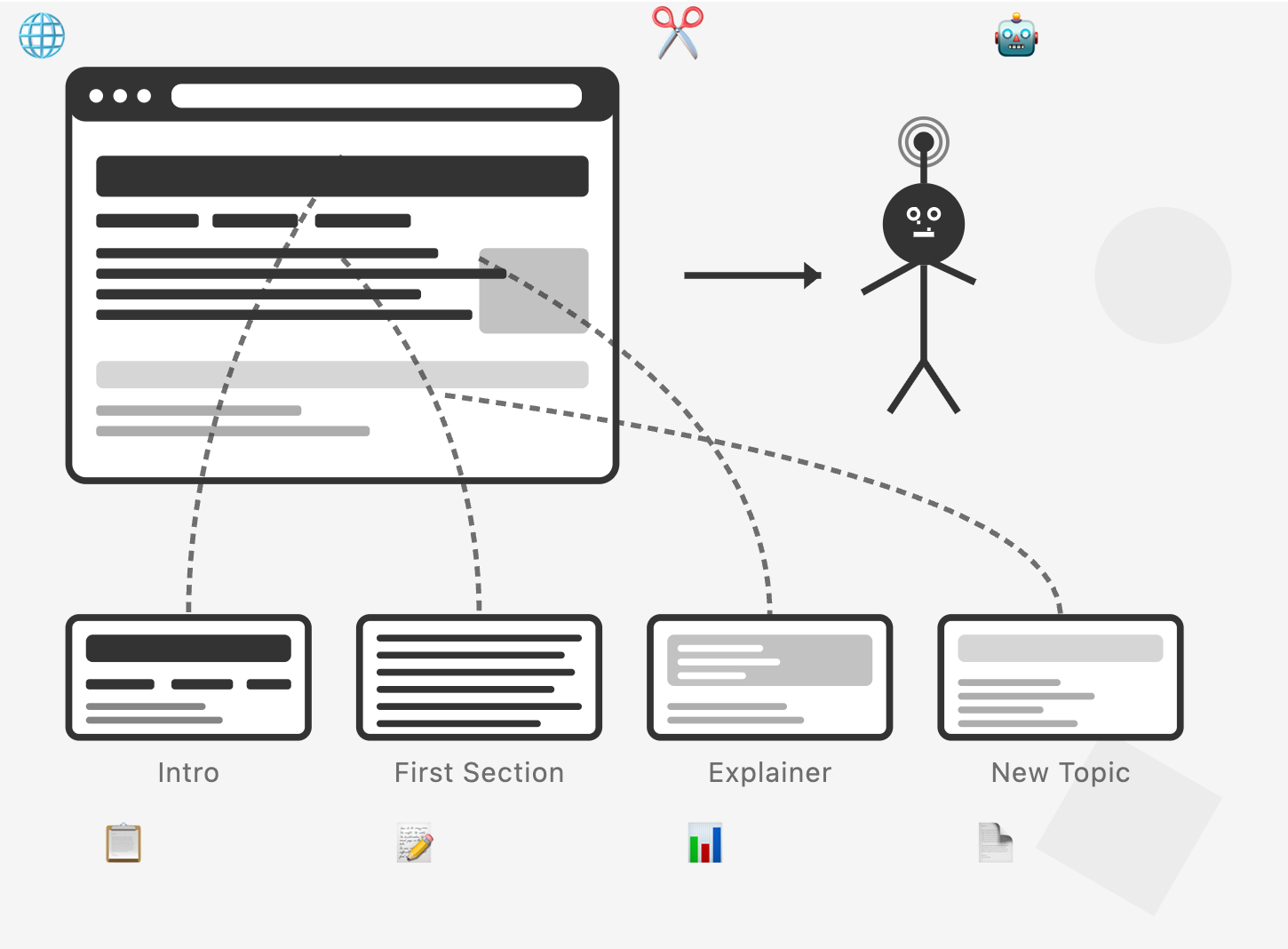
In the AI Mode breakdown I linked to, Mike King mentions that AI Mode processes content in a new way. He describes it as:
Passage-level retrieval instead of page-level indexing
Content chunking is going to force us to think about how we organize articles to ensure the flow makes sense.
- Content will need to follow a logical and cohesive narrative thread to be understood
- Your headings need to accurately describe the content (passage) below the heading and frame it accurately
- The content of each passage needs to have its own internal structure, with the bottom line stated up front
- Keywords in headings will be less important than questions thoroughly and correctly answered
- Good grammar and self-editing is vital; each thought must be complete and self-contained within a passage
- Relationships have to be defined clearly using subject-predicate-object constructions
We're already seeing clues about how AI Mode pulls content from a page to inform an answer. Here's the logic used to fetch snippets: we can see what kinds of information they contain, how they're phrased, and how they're formatted.
This is an evolution in the way we think about information retrieval, and I think it's exciting. For any decent writer, it also sounds quite familiar. If you haven't got any decent writers left.... well...
Companies that fired all their writers will regret it
The renewed focus on clarity, structure, freshness, original research, and information gain means writers will be needed more than ever.
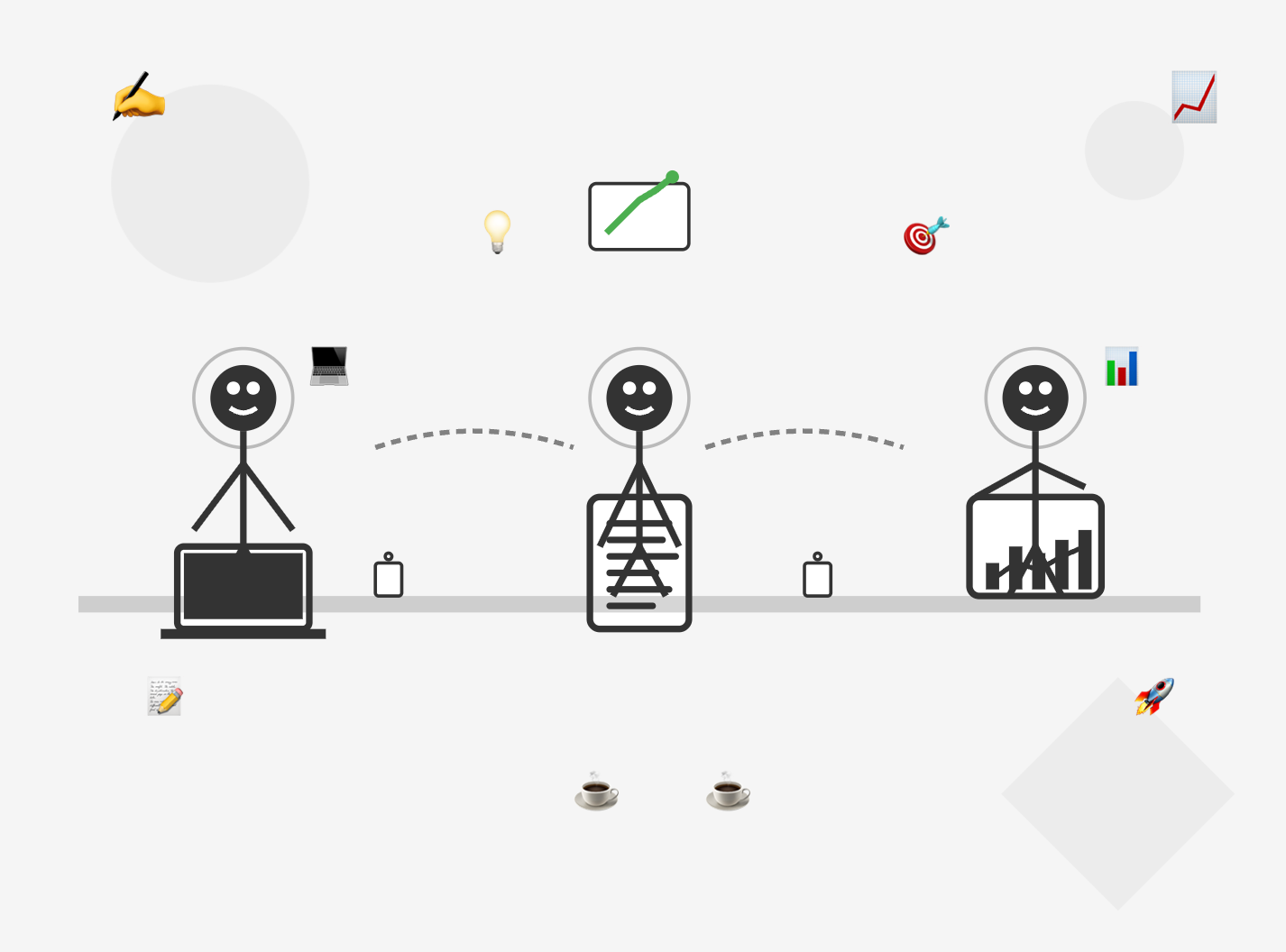
Getting clicks is MUCH harder than it used to be. We can all see that in our reporting.
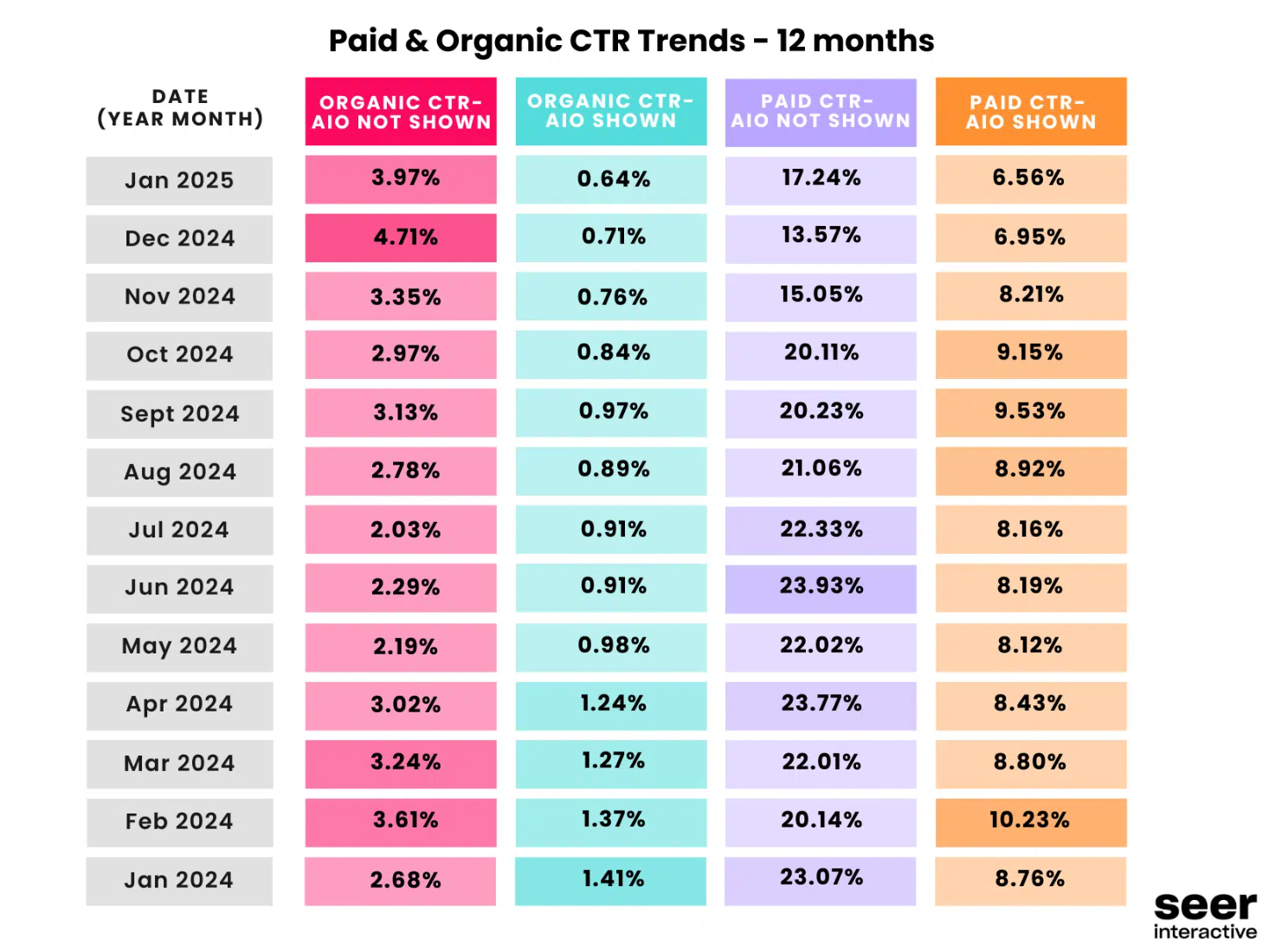
(Those figures are from January 2024-January 2025 for informational queries. I expect we'll see further drops in January 2026, partly due to AI Mode.)
If your CTR is tanking, that doesn't mean content marketing is dead. It means you need good writers to compete for the clicks that are still there.
Check out this post from Emily, a writer on my team at Exploding Topics.
Her article on SEO audits appeared in the classic SERP, AI Mode, and ChatGPT search within hours of being published:
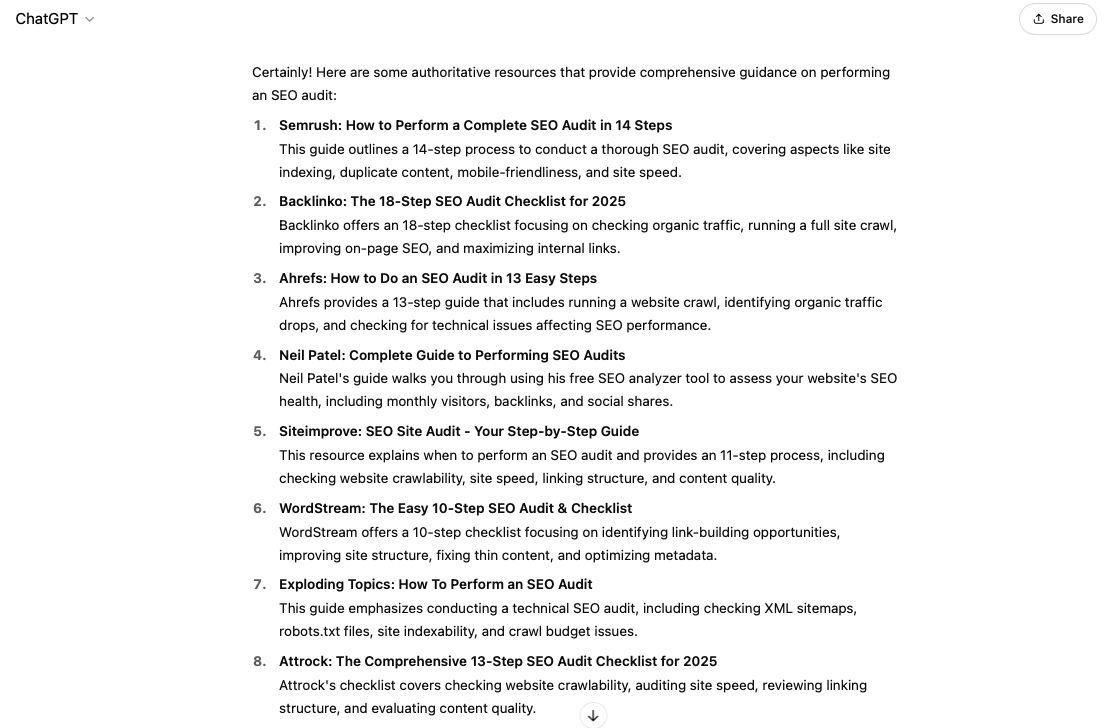
This happened because we had a great writer in charge of what we published.
We combined that with:
- Excellent structure and layout
- Professional, clear annotated images
- Good domain authority
- Established topical authority
- Excellent semantic keyword coverage
- Tons of information gain from someone who actually does this stuff and knows what they're talking about
This is what great writers bring to the table. This is quality content in action. It would not have happened if the article was generated with AI.
New idea for a Chrome extension. If "digital landscape" appears anywhere on the page, it closes the tab for you to save you a click.
— Claire Broadley (@clairebroadley.com) 2025-05-27T11:48:07.140Z
(And this is not the only time it has happened.)
I am not saying that all the writers who lost their jobs will get jobs again in 2026. Sadly, the market has changed. AI has taken a chunk of writing work, and that chunk is not coming back.
But the companies that scrambled to fire their writing teams now find themselves up against companies that took a more measured approach. Daniel Foley Carter says it better than I can:

Reputation and mentions will overtake rankings
Studies suggest that brand mentions (not links) are critical in AI search.
We've known this since SparkToro published this excellent whiteboard in October last year.
The currency of large language models is mentions (specifically, words that appear frequently near other words) across the training data.
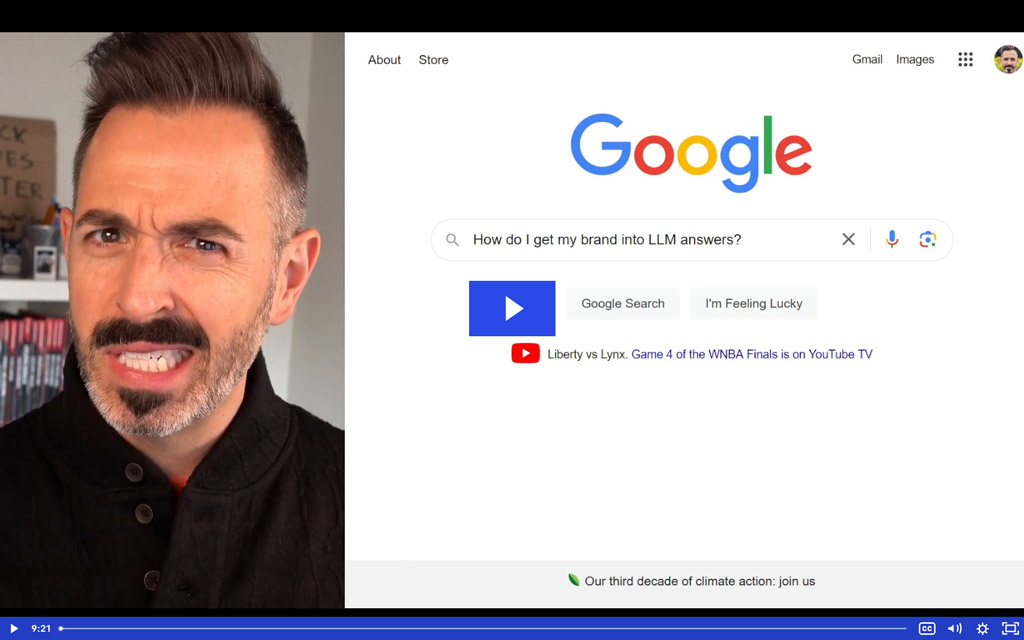
It's not just going to be about whether you're a small brand or a large one. You're going to need to have a good reputation that is reflected across the entire web. Meaning:
- Independent reviews
- Maps
- Comparisons
- Local guides
- Social media discussions (especially Reddit)
- Appearances in press articles and podcasts
For businesses: some of this is within your control, but much of it won't be.
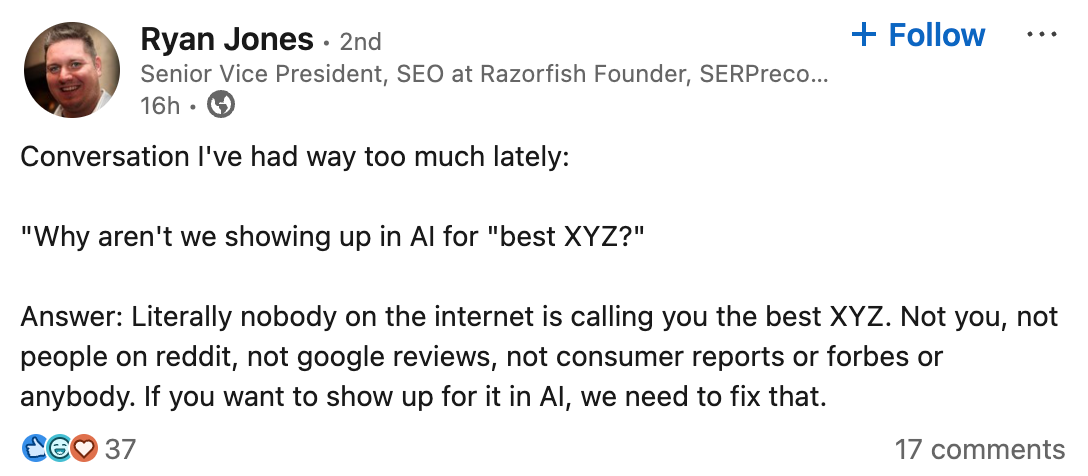
Bad news if your customer service sucks.
My guess as to where we're going
Clients are going to ask us what we plan to do to adapt. So here's my guess, keeping in mind that I reserve the right to learn more and change what I think.
- We'll need to produce better content that costs more and takes longer to create
- We'll have to feed AI answer engines and LLMs with information they don't already have
- We'll have to be satisfied with fewer clicks and less traffic
- We'll have to accept that we're optimizing for unstable platforms that don't give the same results every time, even for the same person
- We'll have to learn to live with hallucinations
- We might not have metrics for the things that we can control
- Our new goal is to answer very specific questions without knowing exactly what they'll be
Does that mean... we're just going to write for robots?
Yeah. But SEO copywriting is writing for robots, so what's really changing?
AEO means optimizing content for new robots with different requirements and a higher bar for entry.
It's scary, and it won't be fun for everyone. From the article on AI Mode:
Unfortunately, I don’t know that everyone is going to make it through this era. The same way some of the last generation’s SEOs couldn’t survive the paradigm shift post-Panda and Penguin, I suspect some won’t cross the chasm into this next wave of search technology.
For the best chance of helping our clients to survive, we need to accept this change and learn about it now.







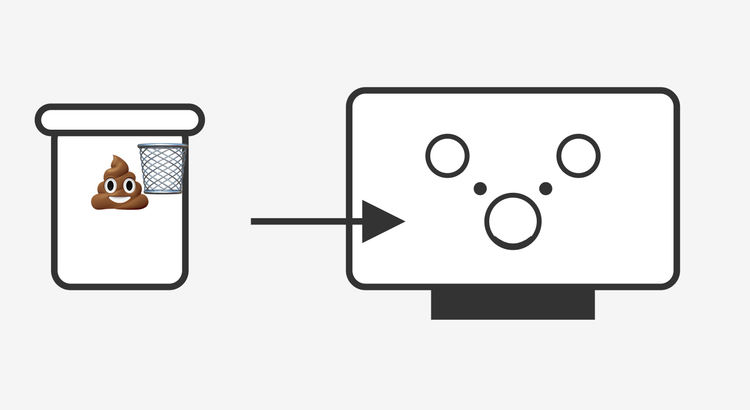
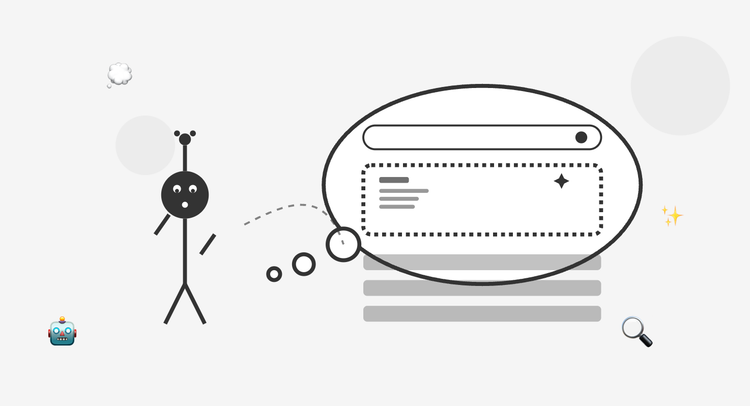
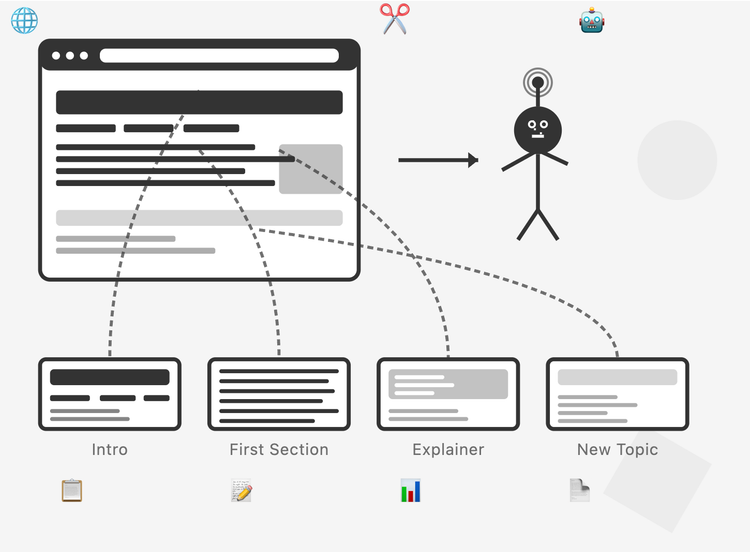
Comments ()